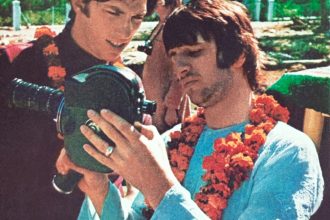I was twelve years old when I realized how well Larry David understands people. I was sitting at the back of my Grade 6 math class, and I was watching the final minutes of the lesson tick by. That day I had forgotten to do the assigned homework from the night before. It seemed like I was in luck —my teacher had forgotten to collect the homework—and I eagerly waited for the final bell to give me my “Get out of jail free” card.
But then, just as I thought I made it, I heard one of my classmates call out to the teacher: “you forgot to collect the homework!” I knew I was screwed, and, judging from the audible groan echoing across the classroom, half of my classmates knew it too. The indignity of it all was that we were done in by one of our own.
In that moment, I could not help but think of Larry David. Being the youngest of three siblings by several years, I probably ended up watching Curb your Enthusiasm at an earlier age than I should have. While most of my friends were playing Mario Kart or Pokémon, I spent hours sitting in front of my television, enthralled by David’s sitcoms.
Seinfeld has often been called a show about nothing, but I think of both it and Curb Your Enthusiasm more as shows about everything and everyone.
In one episode of Curb Your Enthusiasm, Larry tries to sneak a water bottle into a movie theatre, but a woman standing outside the gate catches him and tells him to throw it out. Assuming that she’s a theatre employee, he listens. Then, as Larry goes to find his seat, he sees the same woman sitting in front of him. She doesn’t even work there!
A similar scenario plays out in Curb’s predecessor: Seinfeld. Elaine, one of the show’s main characters, is trying to steal back her tennis racket from the office where she is interviewing for a new job. As she reaches for the racket, an office employee catches her in the act. “You don’t have to tell your boss about this, do you?” Elaine asks hopefully. The man replies, “I don’t have to… but I will.”
In these scenes, Larry David shows his ability to faultlessly portray aspects of people’s character. In both instances, he demonstrates how we are unable to keep our noses out of each other’s business, especially when we catch others breaking the rules. This is exactly the same drive that compelled my Grade 6 classmate to turn in the rest of us in.
Seinfeld has often been called a show about nothing, but I think of both it and Curb Your Enthusiasm more as shows about everything and everyone. On one hand, most sitcoms craft characters that are larger than life, and then the writers try to create humour through the absurdity of the exaggerated situations in which the characters find themselves. Seinfeld and Curb Your Enthusiasm, on the other hand, have both resonated so strongly because they show people exactly as they are. I can’t count the times I’ve been watching either of Seinfeld or Curb and thought to myself, “I’ve met people exactly like this before.” This talent for capturing human idiosyncrasies is what separates David’s shows from all the rest.
If Larry David’s talent was limited to just understanding human character flaws, his shows would still be an interesting examination of people’s behaviour. What makes Curb and Seinfeld truly hilarious, however, is how David is able to respond to these behaviours in the way we all wish we could. On Curb, Larry David’s character is a unique individual. He has a very keen sense of the rules of polite society, but ironically, he is not in any way a polite person himself. This dual nature allows him to say exactly what we are all thinking… out loud. He is a self described “social assassin” that obliterates any behaviour he does not like.
…but that’s what Larry David does. He is the rude champion of basic manners.
Whether it is people taking too many samples at an ice cream shop (“I wonder what the banana flavour will taste like – maybe- a banana!?”), men wearing shorts on a flight (“Your hairy legs are not all that attractive to look at for five hours, they’re grotesque”) or someone sitting in the middle seat on a bus while the two aisle seats are empty (“It’s like using the middle urinal!”), Larry—David’s fictionalized alter ego on the show—does not hesitate to voice his true feelings. In one episode, Larry is eating at a restaurant when he notices another patron talking too loudly into his cellphone. Larry, who is eating alone, then proceeds to talk loudly to himself, for no reason other than to show the other man how obnoxiously he is acting. Of course, Larry is being pretty abrasive himself, but that’s what Larry David does. He is the rude champion of basic manners.
Now, I am definitely not advocating for more people to act like Larry David. All of his social honesty comes at a high price. Larry is eating alone in the above scene after all; he is not exactly swimming in close friends. We can’t all walk around picking fights with every flight attendant and salesperson that crosses our path. But, we can certainly enjoy watching Larry David do it for us.
So, the next time someone insults you, argues with you or slights you in any way, just think to yourself: “What would Larry do?” Then, avoid doing whatever comes to mind. Instead, take a deep breath, gather your thoughts, and go watch another episode of Curb instead.








